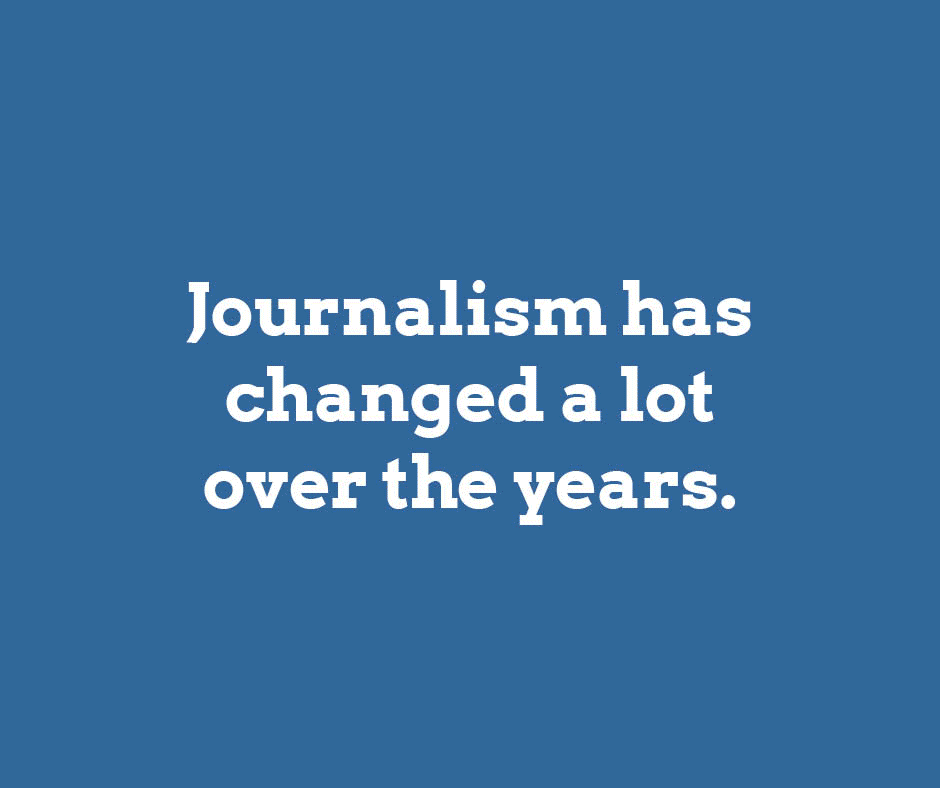Enough of the requiem of the labour reporter. It’s time for a resurrection

Digital journalist Nicholas McCallum argues that journalists need to take more of an interest in industrial relations reporting – for their own sakes.
With the Turnbull government seeking to implement $4 an hour internships for young workers and penalty rates on the chopping block again, there has never been a more important time for workers to know about labour issues. And as story tellers, it’s past time we get informed ourselves.
And if you think losing Sunday rates and working for poverty wages only concerns young and unskilled workers in the hospitality and service industries, guess again. Because media professionals too are losing out in the war on workers’ rights.
In the near future, unions and employers across a number of industries will negotiate before the Fair Work Commission to settle minimum standards. Journalists especially should pay attention to discussions around a devilish little clause that will exclude many present and all future journalists from the “Hours of Work” matters – ie, penalt rates for not working ordinary hours, break times, weekends, public holidays, and overtime.
Clause 4.10 of the current award states penalty standards will not cover “an employee employed on an online publication other than those employees … working on an employer’s print publication” which will soon be not many.
According to analysis by The Australian, when Fairfax does the inevitable and scraps its daily print metros, almost half of its work force could go (News Corp employees will not be immune from this). Those who remain will almost exclusively work online – a world of rolling, round-the-clock deadlines from Monday through Sunday. And they won’t get any penalties when they are expected to work at any of these times because 4.10 invalidates them.
This clause already gives bosses the convenience to force staff to work when they want them to in order to provide news for when consumers want it. But this all comes at a cost to the workers who have no choice but surrender their time at the expense of personal lives, their leisure time and their relationships.
Imagine if you had to work 5am starts for nine days in a row without recompense for your toil. Then take two weekdays off, then you move to shifts that carry knockoff times well past midnight. Weekends become a distant memory.
Does a schedule like this provide a work-life balance that allows you to play a team sport or take a class? What if you had a family to care for?
Normal working hours rapidly a thing of the past
If this story does not sound familiar to you, it is the reality for many of your peers.
Young journalists looking to forge our way in the industry are encumbered with working all sorts of ugly hours. Even when we are not in the office – on the clock officially – it’s expected we are keeping up with the news and maintaining a presence on social media. We accept this as the norm because working harder now will pay off down the line, but in doing so our perception of workable hours changes, the story becomes normative.
If our own notions of penalties and entitlements is skewed, how are we to understand and empathise with unskilled and lower-paid workers without the same opportunities for professional advancement? Communicating and reporting on the labour concerns of those in the bottom brackets becomes harder when our concept of the workday is so perverse. This communication problem is only increased when the majority of labour reporting is couched in business’ concerns.
We hear predominately about industrial relations through business reporting. Workers’ concerns are overshadowed by matters of convenience and choice of another group – the consumer.
Last Christmas was less than two months away when the NSW government changed trading hours law to allow shops outside the Sydney CBD to open for Boxing Day. The move, the Baird government said, would be a win for consumers and shop owners.
“It’s unfair that the residents of Sydney’s eastern suburbs have been able to access Boxing Day sales while people in western Sydney have not,” Treasurer Gladys Berejiklian, suggesting consumers in smaller cities and regional centres should not miss out either. Shoppers rejoice!
 Free marketeers, who long for a 24-7/365 economy, also had a victory. And soon opened another front in their attack.
Free marketeers, who long for a 24-7/365 economy, also had a victory. And soon opened another front in their attack.
With holidays drawing nearer, talk of abolishing Sunday rates again reared its head. Debate centered on “choice” – specifically, business owners’ lack of choice.
“We are hamstrung by penalties,” they cried. They would trade on Sundays, if not for the wages burden. But most hospitality and service-industry workers have no choice when it comes to working weekends. They work when they are rostered, or they walk.
Retail Council chief executive Anna McPhee argued in Fairfax: “we no longer live in a society where only one member of the household works, leaving the other to do all the household chores between 9 to 5 Monday to Friday”.
Old-fashioned trading regulations on businesses were “hindering their ability to provide jobs and offer consumers greater convenience, choice and value”.
In the push for extended hours, it’s workers who feel the pressure. Yet workers are the ones being forgotten in the debate. With trading hours being extended while penalty rates are reduced, workers are getting beaten at both ends. Business wants to give consumers more “convenience, choice and value”, but workers lose all three.
Couching labour and workplace issues in debates about business and consumer relations is part of the problem. Take any public transport industrial dispute as an example. When a train or tram strike is imminent, reportage focuses on the inconvenience for commuters – that is, consumers.
The ABC too has walked a fine line between covering labour issues close to home. With the axe of “efficiency dividends” hovering above them, ABC journalists were forced to cover their own job losses while presenting balanced reports on the funding cuts.
ABC reporters and staff were penned off and pitted against each other so management could find “efficiency dividends” in what sardonically became known as the “Hunger Games”. Quentin Dempster, veteran reporter and ABC board staff rep, was among 400 staff to go. The story is not likely to end there.
Union solidarity has typically been strong at the national broadcaster, but this is under threat from inside and out. In February a memo landed on staff desks, penned by Ultimo House Committee and the union informing staff that management had banned them from having their legal union meeting on premises – as they had done for five years.
In such a hostile work environment, could ABC journalists effectively report on other workplace issues when their story is so bleak?
We all have a stake in better reporting
With fewer covering the labour beat and new journalists being spread thinly across more subjects, it’s no wonder unions are not being embraced with the same vigour as prior generations. Yet this is no excuse for journalists not to understand labour issues. There has never been a more important time to get our heads around industrial relations.
If governments, business groups and employers are going to insist on greater “convenience, choice and value” for themselves and consumers, it must not come at the expense of workers – forced to surrender all three without fair and just penalties.
It falls on us to encourage our peers and colleagues to be more aware of their situations and how they are currently denied penalty rates simply because we work in the digital space. We should encourage workmates to sign up and unionise, but we also need them tell their stories, to understand the degradation of their work rights will trickle down to those at the bottom.
When we enter the negotiating room with our employers to discuss awards, it’s digital workers’ stories that will need to be told if we are to have any hope of getting those above to understand how hard we at the bottom work for them, and that we should be compensated.
Nicholas McCallum is a digital journalist at Yahoo! Seven News. He attended the Nationwide Convergence to Organize Digital Media conference on behalf of MEAA. He tweets at @nkmccallum